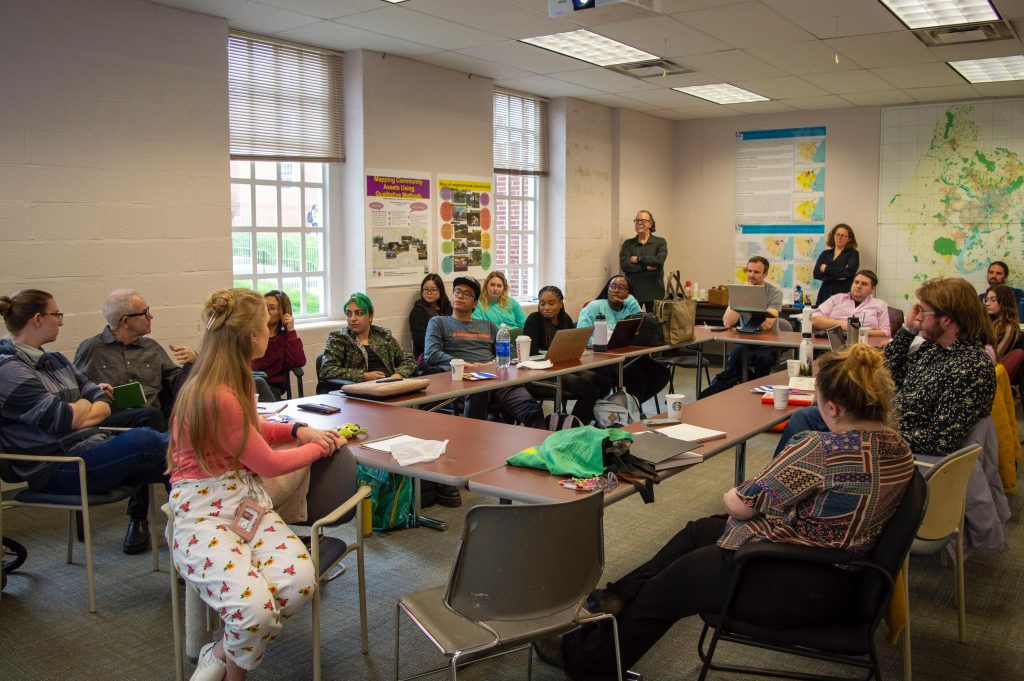
STRATEGIES
Our strategies leverage the power and resources that we have as a public University-based research center in pursuit of our 3 outcomes.
Research:
We create new research, critically assess existing research and document equitable Smart Growth practices and policy, and make our findings accessible through accessible policy briefs, FAQs, case studies, academic publications.
Collaborative Practice:
We provide direct support (e.g. time, money, space, information, technical assistance) to key partners (e.g. Community-based organizations, agency staff, coalitions), convene and engage in conversations and amplify the work of coalitions and communities of practice.
Education and Curricular Development:
We are supporting the next generation of planners/policy makers by offering undergraduate and graduate courses (e.g. PALS, studios, seminars), providing hands-on training and research opportunities for masters and PhD students, influencing university recruitment practices and supporting teachers on curricular development across campus.
Advocacy:
We work with community partners to support their organizing efforts, testify in “halls of power” (e.g. before local, state and federal legislatures) and make sure our research and scholarship is accessible and applicable to real-world decision-making.
VALUES
Power-conscious: We know the difference between participation and power, and will always be clear in defining our goals and decision-making processes to avoid participatory activities devoid of political action or power analyses.
Community-centered Processes and Outcomes: We ground our approaches in the lived experiences of Black, Brown, and immigrant communities and those living with low- and moderate- incomes communities whenever possible. We work hand-in-hand with people and organizations in these communities to generate research questions, analysis and goals in ways that center their experience, even when our named project partner is a government agency, national group or institution.
Ethical Research: Instead of using research to assert hegemonic norms and excuse harmful decisions as has been the case for centuries, we are committed to challenging these behaviors and utilizing research in pursuit of equity and justice. We will share research results with community partners in the format they request (whether written, oral, graphic, etc).
Collaborations built on Reciprocity and Respect: We are committed to building relationships with those that share values and honor a collective sense of process in a generative, non-extractive and non-hierarchical, manner. We will contribute to processes held and defined by others, because we know that not all ideas start at the university. And, we will share credit, authorship and funding in a manner that honors all contributors.
Environmentally Just Communities: We champion energy- and resource-saving built environments. Focusing on the health and wellbeing of human communities and the equitable distribution of consumption and climate impacts is what drives our decision-making about environmental concerns.
A Learning Posture: As teachers, scholars and practitioners, we are invested in life-long learning and we are consistently finding and creating opportunities for students and communities to learn from and engage with each other.
